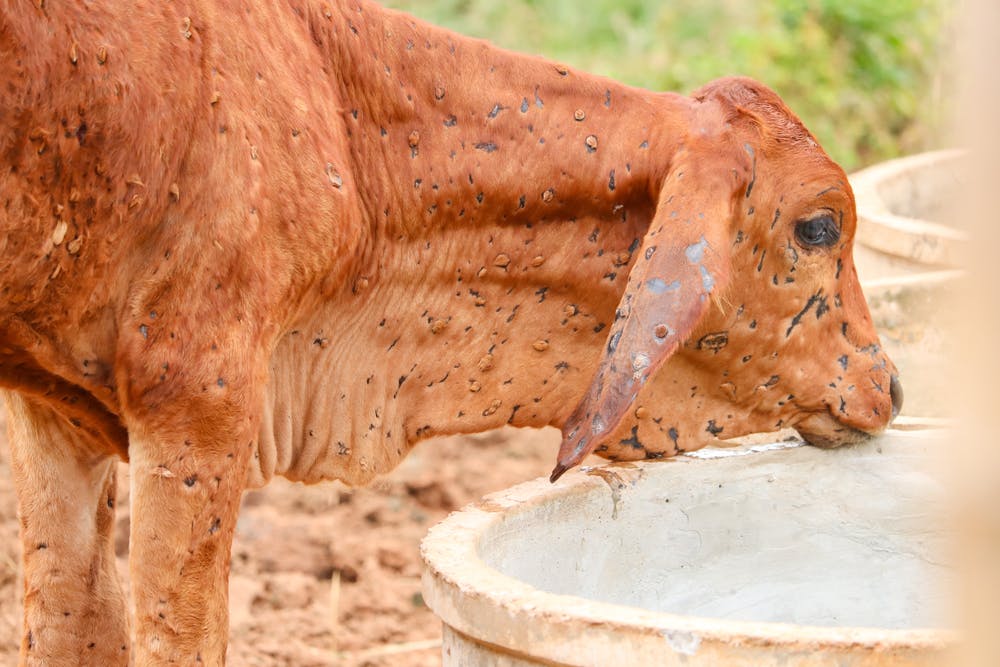Cattle Dying from Lumpy Skin Disease
There have been reports of cows suffering from lumpy skin disease in several Indian states. What exactly is this disease, and what are its effects?
A calf suffering from lumpy skin disease.
Anamitra Swarupa • 22 Sep, 2022 • 7 Min
CEFR A2 (Easy)
